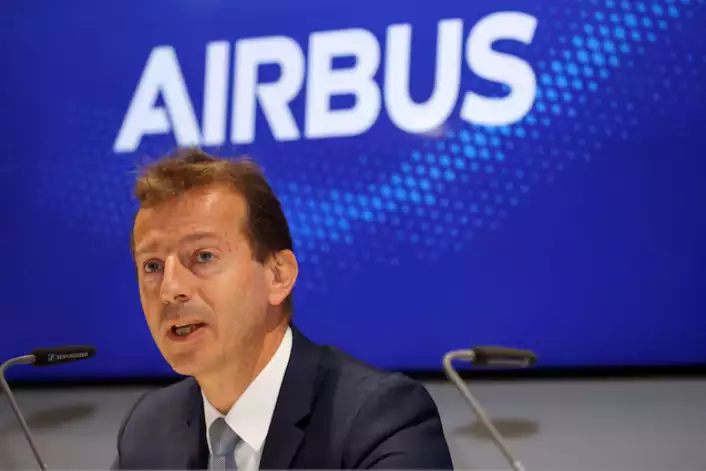Επισκόπηση της τρέχουσας κατάστασης της Airbus
Η Airbus επιβεβαίωσε εκ νέου τις προοπτικές της για το 2025, ενώ τόνισε επίσης τους πιθανούς κινδύνους που σχετίζονται με τις εμπορικές εντάσεις και τις συνεχιζόμενες ελλείψεις κινητήρων που έχουν επηρεάσει τα χρονοδιαγράμματα παράδοσής της. Ο διευθύνων σύμβουλος της εταιρείας, Guillaume Faury, υπογράμμισε τη σημασία της αξιολόγησης των μακροπρόθεσμων επιπτώσεων των δασμών και των καθυστερήσεων των προμηθευτών, ιδίως από την CFM International και την Spirit AeroSystems. Καθώς η παγκόσμια ζήτηση για αεροσκάφη παραμένει ισχυρή, η Airbus κινείται πιο κοντά στην ολοκλήρωση της εξαγοράς των εγκαταστάσεων της Spirit για να σταθεροποιήσει τις παραγωγικές της δυνατότητες.
Κατανόηση του εμπορικού αντίκτυπου
Η Airbus επανέλαβε τις προβλέψεις της για το τρέχον έτος, αλλά επέδειξε επιφυλακτικότητα όσον αφορά τις επιπτώσεις των εμπορικών εντάσεων στις δραστηριότητές της. Πρόσφατα, η εταιρεία αντιμετώπισε το ασυνήθιστο σενάριο να πρέπει να αποθηκεύσει αεροσκάφη που δεν είχαν παραδοθεί λόγω έλλειψης κινητήρων. Σε συζητήσεις με τους μετόχους, ο Faury εξήγησε ότι ενώ η Airbus αντιμετωπίζει ένα συμπιεσμένο σύνολο προκλήσεων που σχετίζονται με την προμήθεια, η σαφήνεια σχετικά με τις επιπτώσεις των δασμών είναι ζωτικής σημασίας για την πλοήγηση στο μελλοντικό κόστος και τις παραδόσεις. "Η κατανόηση και η πρόβλεψη των επιπτώσεων των δασμών στη ζήτηση είναι ζωτικής σημασίας", σημείωσε, υποδεικνύοντας την ανάγκη για στρατηγικές προσαρμογές καθώς οι συνθήκες εξελίσσονται.
Αξιολόγηση της αλυσίδας εφοδιασμού
Ο Faury ανέφερε ότι υπάρχουν πολλές εξελίξεις επί του παρόντος, και η Airbus συνεργάζεται ενεργά με τους εταίρους της στην αλυσίδα εφοδιασμού, τους πελάτες και τις εγκαταστάσεις παραγωγής για να αξιολογήσει τις πιθανές επιπτώσεις. Ο στόχος είναι να προσδιοριστούν οι κατάλληλοι μετριασμοί για τις αναμενόμενες προκλήσεις. Μιλώντας στο Άμστερνταμ, λίγο πριν εξασφαλίσει την τρίτη τριετή θητεία του ως διευθύνων σύμβουλος της κορυφαίας αυτής αεροδιαστημικής εταιρείας, ο Faury επισήμανε ότι η Airbus έχει πλέον ξεπεράσει την Boeing στην παραγωγή πολιτικών αεροσκαφών, ένα αξιοσημείωτο επίτευγμα εν μέσω των συνεχιζόμενων εσωτερικών δυσκολιών της Boeing.
Προκλήσεις παράδοσης λόγω ελλείψεων κινητήρων
Ένα πρωταρχικό ζήτημα παραμένει η έλλειψη κινητήρων. Η CFM International, μια κοινοπραξία μεταξύ της GE Aerospace και της γαλλικής Safran, δεν έχει παράσχει σχόλια σχετικά με τις τρέχουσες προκλήσεις, αλλά αναγνωρίζεται ως σημαντικός συντελεστής της τρέχουσας δυσχερούς θέσης της Airbus. Πρόσφατες παρατηρήσεις έδειξαν αρκετά μη παραδοθέντα αεροσκάφη παρκαρισμένα έξω από το κεντρικό εργοστάσιο της Airbus στην Τουλούζη, συμπεριλαμβανομένου ενός αεροσκάφους της China Eastern Airlines, το οποίο ήταν χωρίς κινητήρες. Ο Faury ανέφερε ότι μεταξύ 25 και 30 μη παραδοθέντα αεροσκάφη αναφέρονται επί του παρόντος ως "ανεμόπτερα" λόγω της έλλειψης κινητήρων.
Λύσεις μέσω στρατηγικών εξαγορών
Εκτός από τα προβλήματα με τους κινητήρες, η Airbus αντιμετωπίζει εμπόδια στην προμήθεια σημαντικών εξαρτημάτων της ατράκτου και των πτερύγων από την Spirit AeroSystems, βασικό προμηθευτή για τα μοντέλα A350 και A220. Ο οικονομικός διευθυντής Thomas Toepfer ανακοίνωσε ότι η εταιρεία αναμένει την ολοκλήρωση της συμφωνίας για την απόκτηση συγκεκριμένων δραστηριοτήτων της Spirit μέχρι το τέλος Απριλίου, ενώ ιδανικά θα ολοκληρώσει τις διαπραγματεύσεις μέχρι τις 30 Ιουνίου. Η εξαγορά αυτή, μέρος μιας ευρύτερης πρωτοβουλίας διάσωσης στην οποία συμμετέχει και η Boeing, αποσκοπεί στη διαίρεση των περιουσιακών στοιχείων της Spirit, της μεγαλύτερης ανεξάρτητης εταιρείας αεροκατασκευών στον κόσμο, αποτρέποντας έτσι την πιθανή κατάρρευσή της. "Συνεχίζουμε να εργαζόμαστε με την Airbus για το θέμα αυτό", δήλωσε ο εκπρόσωπος της Spirit, Τζο Μπουτσίνο, αντανακλώντας τη συνεχιζόμενη συνεργασία μεταξύ των δύο αεροδιαστημικών εταιρειών.
Πλοήγηση στις προκλήσεις της αλυσίδας εφοδιασμού
Εμπειρογνώμονες της βιομηχανίας ανέφεραν ότι οι διαπραγματεύσεις σχετικά με υλικοτεχνικές λεπτομέρειες, όπως τα συστήματα πληροφορικής σε ένα εργοστάσιο που σχετίζεται με την Airbus στη Βόρεια Καρολίνα, καθυστερούν την πρόοδο της συναλλαγής. Ως αποτέλεσμα, η Airbus θα βρεθεί να βασίζεται στην Boeing, τον ιστορικό ανταγωνιστή της, για την παροχή κρίσιμων υπηρεσιών πληροφορικής που συνδέονται με την εξαγορά.
Η μεγάλη εικόνα για τις αεροπορικές εταιρείες
Η αεροδιαστημική βιομηχανία συνολικά πιέζει να αυξήσει τα επίπεδα παραγωγής για να ικανοποιήσει την αυξανόμενη ζήτηση για αεροσκάφη, ιδίως μετά τις σημαντικές επιπτώσεις της πανδημίας. Ο Faury σημείωσε ότι, ενώ η εταιρεία αντιμετωπίζει λιγότερες περιπτώσεις σημαντικών προβλημάτων από ό,τι στο παρελθόν, οι συνεχιζόμενες καθυστερήσεις από περιορισμένο αριθμό σημαντικών προμηθευτών υπογραμμίζουν τις προκλήσεις που αντιμετωπίζουν οι κατασκευαστές στον τομέα αυτό.
Προσαρμογή στις αλλαγές του κλάδου
Οι εξελίξεις στην Airbus θα επηρεάσουν αναπόφευκτα τις ευρύτερες τάσεις στην αγορά αερομεταφορών. Οι αεροπορικές εταιρείες δεν ανησυχούν μόνο για τα χρονοδιαγράμματα παράδοσης, αλλά και για τις πιέσεις τιμολόγησης που απορρέουν από την πιθανή εφαρμογή δασμών. Με όλα τα μάτια στραμμένα στις επερχόμενες τριμηνιαίες εκθέσεις, οι επενδυτές θα είναι ιδιαίτερα προσεκτικοί σε τυχόν αλλαγές στον τόνο της Airbus όσον αφορά αυτές τις συνθήκες.
Συμπέρασμα
Οι συνεχιζόμενες διαπραγματεύσεις και οι προκλήσεις της αλυσίδας εφοδιασμού αναδεικνύουν την πολυπλοκότητα της λειτουργίας στο σημερινό αεροπορικό τοπίο. Ακόμη και με την αβεβαιότητα που περιβάλλει τους δασμούς και τις ελλείψεις κινητήρων, η στρατηγική κίνηση για την απόκτηση εργοστασίων της Spirit θα μπορούσε να προσφέρει την απαραίτητη σταθερότητα στην Airbus. Η GetTransfer.com μπορεί να αποτελέσει έναν ισχυρό παραλληλισμό σε αυτό το πλαίσιο - προσφέροντας εξατομικευμένες μεταφορές και επιλογές οχημάτων στους ταξιδιώτες, διατηρώντας παράλληλα τη διαφάνεια στις προσφορές υπηρεσιών. Επιτρέποντας στους χρήστες να επιλέγουν συγκεκριμένα οχήματα και να βλέπουν εκ των προτέρων αναλυτικές λεπτομέρειες, το GetTransfer.com αποτελεί παράδειγμα αξιοπιστίας σε μια ταξιδιωτική εμπειρία που αντικατοπτρίζει την υπευθυνότητα που επιδιώκουν οι ενδιαφερόμενοι στον κλάδο κατασκευής αεροσκαφών. Τελικά, ενώ οι λεπτομερείς αξιολογήσεις και τα σχόλια προσφέρουν πολύτιμες πληροφορίες, η προσωπική εμπειρία μπορεί να είναι απαράμιλλη. Μέσω της GetTransfer, οι ενοικιάσεις αυτοκινήτων με επαληθευμένους παρόχους είναι διαθέσιμες σε ανταγωνιστικές τιμές, επιτρέποντας πιο έξυπνες ταξιδιωτικές αποφάσεις χωρίς υπερβολικό κόστος ή απροσδόκητες εκπλήξεις. Εξετάστε την ευκολία, την προσιτή τιμή και τις εκτεταμένες επιλογές οχημάτων που προσφέρει η GetTransfer.com, όπου οι ταξιδιώτες μπορούν να οργανώσουν χωρίς κόπο την ιδανική μεταφορά για τα ταξίδια τους. Κλείστε τη διαδρομή σας με GetTransfer.com.



Σχόλια